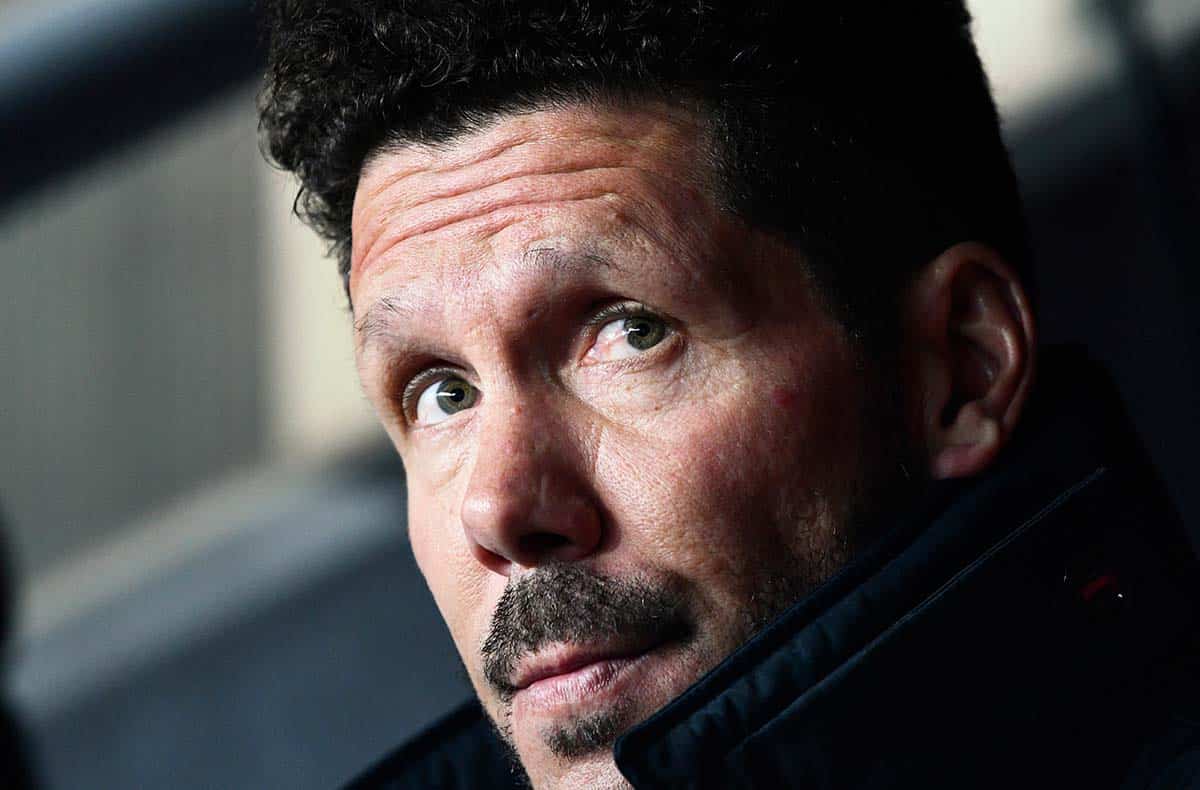
“If you want to spoil a game of football, just play like Atlético Madrid.” The former Liverpool and Wales striker Dean Saunders was not holding back as he lambasted Atlético’s style of play on talkSPORT. “It’s called parasite football,” he added. “They live off your mistakes.”
Host Jason Cundy, formerly of Chelsea, replied: “Don’t be a football snob.” And Cundy was right to tackle Saunders front on. What Diego Simeone’s Atlético Madrid do is something to truly marvel at.
To the idealists and the romantics among us, football is about entertainment first. And if that were true for everyone, Atlético could quite justly be charged with spoiling matches and feeding off their opponents’ errors. But at the elite level of football where Spain’s third-biggest side are competing, football is only entertainment second. It is business, work and livelihood first.
What is a sport if not a puzzle to solve and win? We may take up our seats at football stadia hoping to be entertained, but when Simeone’s players entered the pitch in their slim first-leg defeat to Manchester City on Wednesday—and when they take to the pitch for the second leg tonight—their primary motivation is not to entertain. They want to win.
Chess players do not see themselves as entertainers. They see themselves as competitors. In football, chess, and any puzzle or game or sport, wanting to win does very little in terms of ensuring you do win. Football is about maximising your strengths and masking your weaknesses. In the same way, it’s about exploiting the weaknesses of your opponents, while giving them as little chance as possible to show off their own strengths.
Simeone enjoyed a superb career as an uncompromising defensive-minded midfielder. He’s now spent over a decade as manager of his former club, and the players who were at the club when he took over from Gregorio Manzano in 2011 were defensively astute. The attackers at the club, meanwhile, were perfectly suited to a counter-attacking style. Defensive solidity is all he’s ever known. So it’s no surprise he implemented a style that many see as negative and unattractive. Player acquisitions in the decade since have remained firmly in line with that club identity.
Simeone’s greatest response to these critics is the great success he’s enjoyed at Atlético. He has led his side to two Champions League finals, and they prevailed over Barcelona and Real Madrid to win their second La Liga title under his stewardship last season. Simeone has also coached them to two Europa League titles, two UEFA Super Cups, one Copa del Rey, and a Supercopa de España. With Barcelona and Atlético’s noisy Madrid neighbours the giants of Spanish football, regularly hoovering up most of the silverware there to be won, Simeone’s modest Atlético side have excelled. And in more recent years, the manager has had greater funds to spend than ever—thanks to his success, and the club’s lofty long-term ambitions.
Atlético have good players. Of that there is no doubt. That is why they finish so high up the La Liga table each season, and why they won the title last season. Clearly they should not be treated like a team of chancers. But their compact, risk-averse style of play really shows its benefits when Atlético grace the European stage. In two-legged Champions League ties during the Simeone’s reign, the Colchoneros have knocked out a huge number of European giants with their parasite football—biding their time and waiting to exploit mistakes and pounce. Real Madrid, Barcelona, Bayern Munich, Liverpool, Chelsea, and, in the round of 16 this season, Manchester United have all fallen prey to Simeone’s masterful opportunists.
Would Atlético have knocked out Jürgen Klopp’s holders Liverpool in the 2018/19 Champions League or even Ralf Rangnick’s hot-and-cold Manchester United in the very last round this term if they’d gone toe-to-toe with these two attacking sides? No chance. Simeone got it spot on: he aimed for the right result, not for an eye-catching performance.
Would Sean Dyche’s Burnley have stayed in the Premier League for as long as they have done had they tried to adopt an expansive style of play with the players they had? Again, no chance. Surely Dyche’s problem-solving should be lauded, and his players lauded too for carrying out his orders so effectively. They shouldn’t be criticised just because they don’t play blockbuster football to write home about. The same is true of Diego Simeone’s Atlético.
Atlético lost the first leg to Pep Guardiola’s Manchester City 1–0. But it could and would have been a lot worse if Simeone had told his side to play the best team in the world at their own game. There’s a good chance they’ll go out to City tonight. But Simeone’s tactics are anything but the reason why. Atlético Madrid can play however they wish. And if they manage to prevail against swashbuckling City, Simeone and his players should be praised.
Atlético Madrid: the masterful opportunists. You don’t have to love it to admire it.



